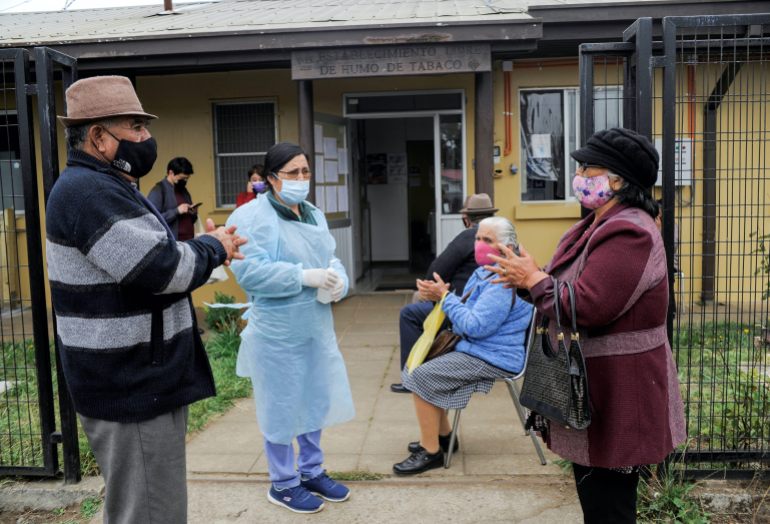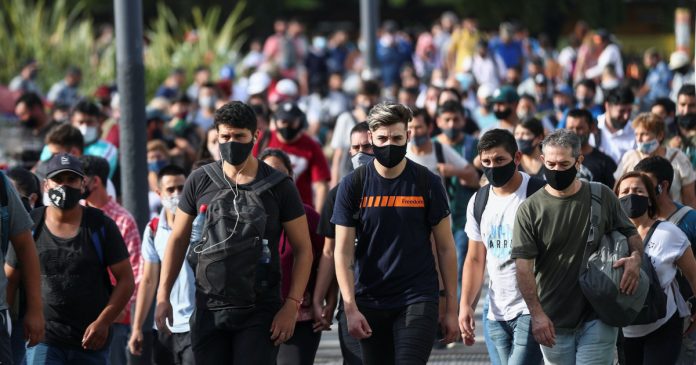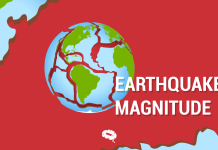[ad_1]
The economic recovery of Latin America will remain uneven and at risk unless governments take control of the pandemic and COVID-19 cases decrease, the International Monetary Fund (IMF) warned Monday.
“If there are no major achievements in vaccinations, if we cannot reverse the trend that we have seen in infections and mortality, then clearly, that recovery would be at risk,” said Alejandro Werner, the IMF’s Western Hemisphere Department director, during a press conference on the fund’s economic outlook for the region.
The IMF forecasts that Latin America’s economy will grow 4.1 percent in 2021 — an upwards revision from the 3.6 percent it predicted last October — but also reiterates that unless there is a major reduction in coronavirus cases, that recovery will stall.
Economic strife on the continent is not a new phenomenon brought forth by the pandemic. Latin America’s economy has been “floundering” since 2014, and in many countries, the dire economic situation has led to social unrest, Werner said.
 People wait to receive China’s Sinovac vaccines against the coronavirus in Lloncao, Chile [File: Jose Luis Saavedra]
People wait to receive China’s Sinovac vaccines against the coronavirus in Lloncao, Chile [File: Jose Luis Saavedra]
The coronavirus and the current economic crisis have presented a slew of new challenges. For one, much of the economic recovery of Latin America is directly tied to the robust recovery of its neighbour to the north. Prolonged economic downturn in the United States would have dire consequences for the Latin American region, Werner warned.
Werner also underscored the importance of opening up space for the private sector to do its job to improve social indicators.
“Each country is going to have to look at policy changes, reforms that could speed up growth [and] open up greater opportunities,” he said. “The post-pandemic scenario is going to call for social consensus, and in those countries that have shown the state is weak in areas of education and health, such areas will have to be strengthened.”
Second wave and uneven growth
The region’s economies bounced back better than expected from a sharp contraction due to strict lockdowns and restrictions in the second quarter of 2020, but COVID-19’s second wave at the end of last year now threatens that recovery.
In some countries like Brazil, Peru and Argentina, manufacturing recovered faster than services, but consumption and investment fell behind, IMF experts reported.
Argentina’s economy shrank 10.4 percent in 2020 and is forecasted to grow by 4.5 percent this year, according to IMF figures.
To curb high levels of inflation in Argentina, the IMF suggests fiscal and monetary policies based on a midterm framework that leads towards stabilising a surge in prices.
Chile’s outlook is better than the rest of the continent because the government provided significant fiscal support in due time, Werner said, and its economy has also been propped up by stable metal prices — a resource the South American nation heavily relies upon.
Turning to the Caribbean, Werner said the region’s economies have been facing the challenge of economic diversification for years. There is huge risk in depending on one economic activity, he said. In the case of the Caribbean, the all-important sector of tourism has all but been annihilated by lockdowns and travel restrictions.
The IMF recommends the Caribbean deepen its supply chain links in its tourism sector. Providing products from the local economy rather than importing goods would help diversify Caribbean economies, it said.
Still, some countries remain optimistic about the future.
On Monday, Mexico’s President Andres Manuel Lopez Obrador said that he expects the economy to grow 5 percent in 2021, Reuters news agency reported, which is slightly higher than the IMF’s projection of 4.3 percent growth.
Mexico, which is Latin America’s second-largest economy, saw its gross domestic product shrink 8.5 percent in 2020, according to IMF figures.
[ad_2]
Source link











